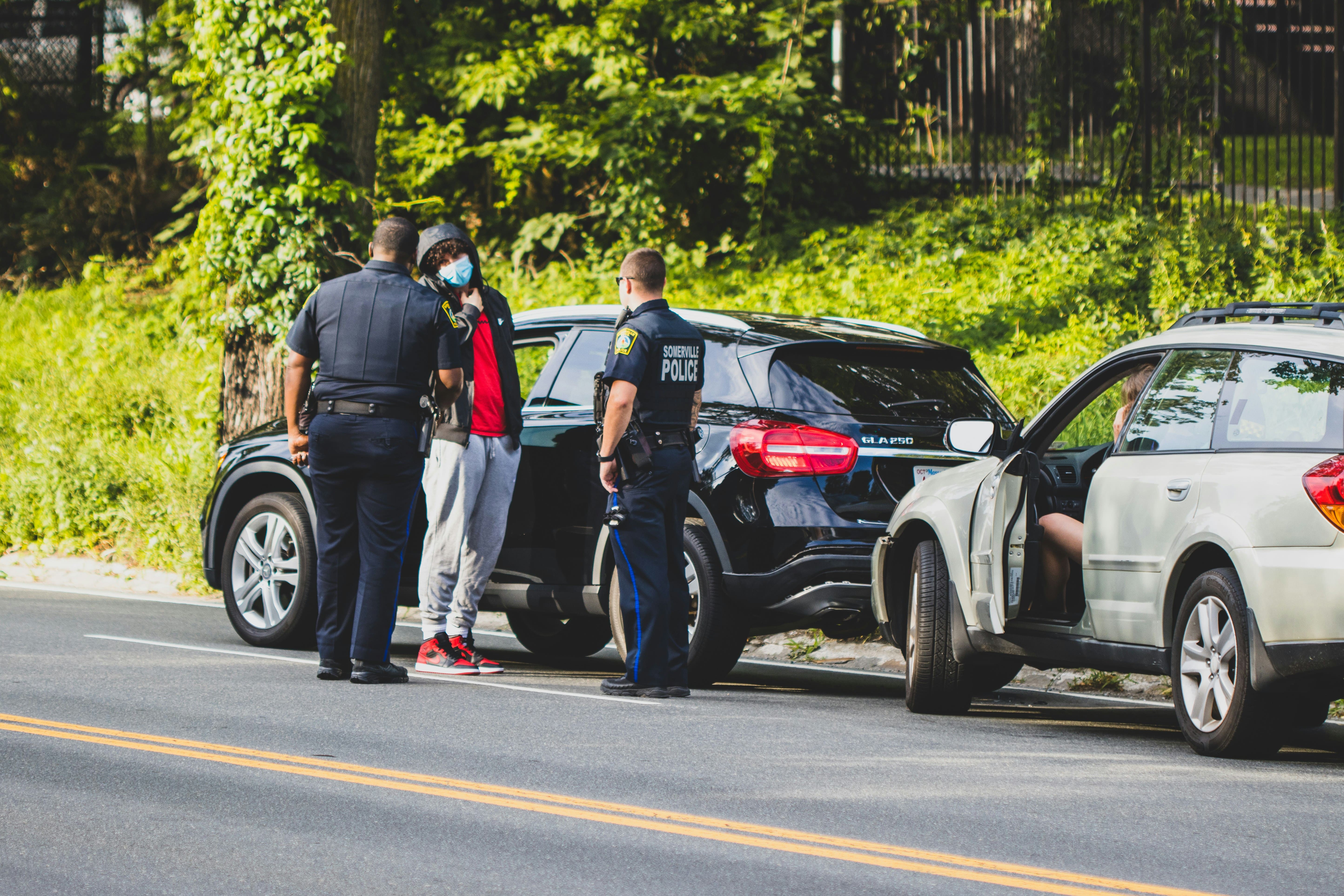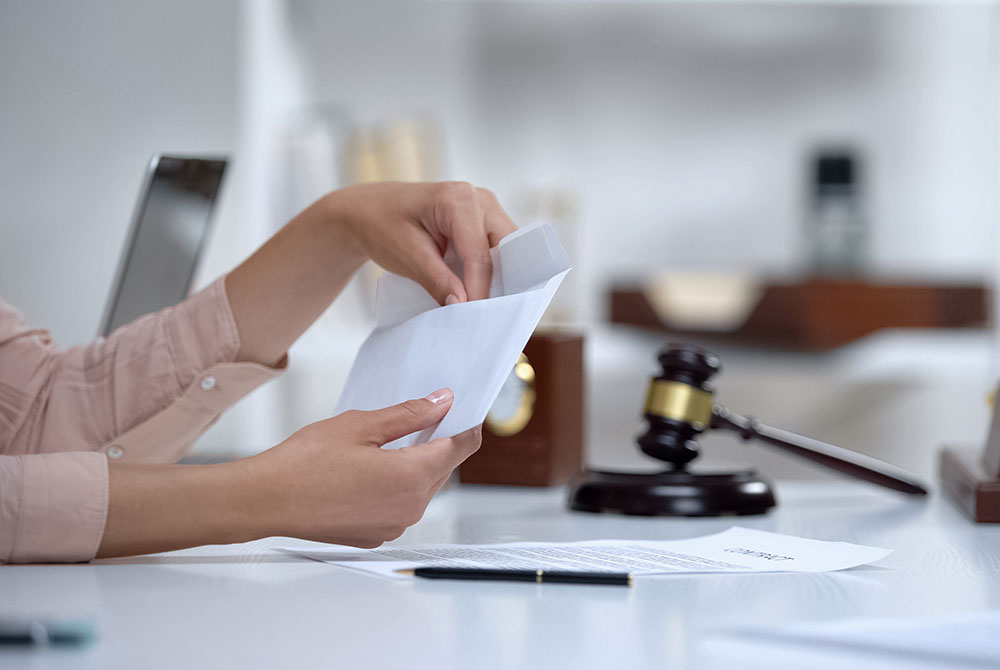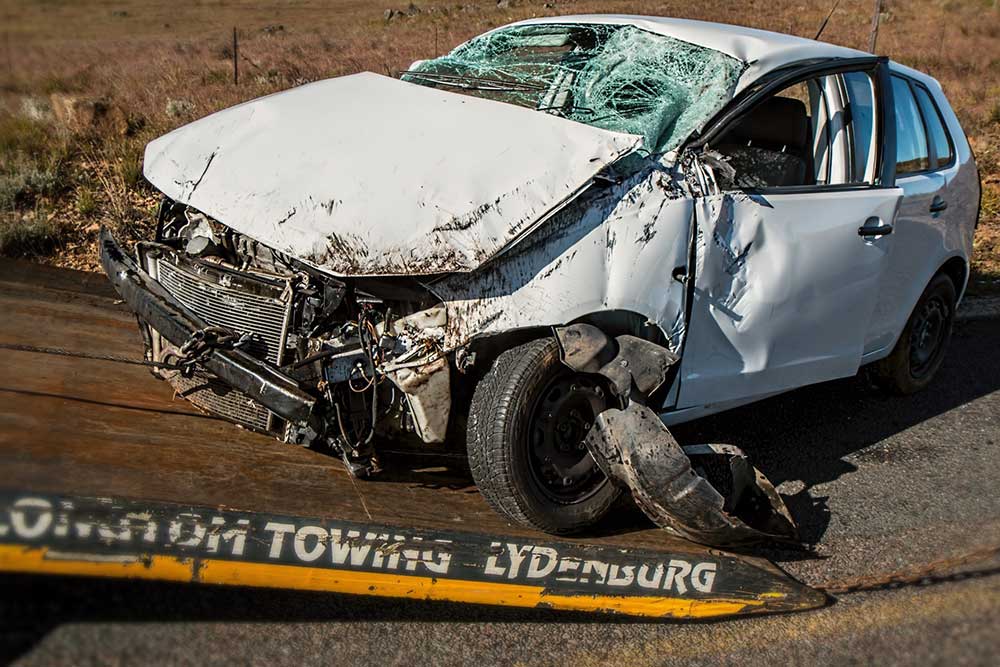
The first thing to do after a car accident in Massachusetts is to ensure your safety and minimize the risk of further harm. If possible, attend to others involved in the incident and ensure they are safe. After that, you should report the crash to 911 and wait for the first responders to arrive. Let the medics assess your condition and exchange contact and insurance information with other parties.
If your condition allows it, take pictures of the scene of the accident and gather witness statements and other potential pieces of evidence. Don’t forget to report the incident and fulfill your legal obligations. Seek legal assistance even if the collision seems insignificant.
Critical Steps to Take After a Car Accident
A car accident is often a stressful and perhaps even traumatic event. It can be overwhelming and confusing. You might need help with properly documenting the scene of the accident and working with the police on an accident report. It is also natural to worry that your insurance company may not cover the full costs of your injuries.
Law enforcement officers may not understand what caused the accident in the first place. However, knowing what to do in the moments, days, and weeks after the accident can go a long way in aiding your recovery and also helping to ensure you receive proper compensation for the vehicle damage caused by the car accident.
For these reasons, one of the best things you can do is find a reputable Massachusetts car accident lawyer. Michael Kelly Injury Lawyers can help you manage the claims process and achieve justice.
Follow this car accident checklist for the best results.
Ensure Safety After a Car Accident in Massachusetts
After a car accident, your immediate priority should be to get yourself and any passengers involved to a safe location. If your motor vehicle is drivable, move it to the side of the road or another safe area away from traffic. Turn on your hazard lights — this way, you can prevent further damage and alert other drivers about the situation.
Always be aware and cautious of your surroundings. Under no circumstances should you stand in the path of oncoming traffic while assessing the situation. Your safety and well-being must remain a top priority before addressing any other concerns.
Call 911 and Report the Accident Immediately
Calling 911 immediately after a Boston car accident will help make sure that law enforcement officially documents the incident. Even if the accident seems minor, having a police report can be super important, especially if you are not at fault.
The report provides an unbiased account of the scene, which can be key evidence when filing a car accident claim or if you need to prove the legal liability of other parties. Additionally, a police report can help simplify the claims process with your insurance company.
Exchange Insurance and Contact Information
Although the police are responsible for compiling an accident report, they may miss some crucial details, especially in serious car accidents, where emergency services and safety are the top priorities. That’s why you should try to gather information on your own to secure your insurance claim.
You should also copy down some identifying information about the other vehicle involved in the accident. Here’s a list of important details to note:
- Full name and contact details of the other driver involved
- Other driver’s insurance company information
- Driver’s license number
- License plate number, vehicle model, and make of the car
- Vehicle registration details, such as VIN
- Contact details of other passengers injured in the accident
Don’t Admit Fault
Even if you believe you may have been the cause of the car accident, refrain from making statements regarding liability until you have had an opportunity to collect yourself. Some people will inadvertently state that they are sorry for causing the incident, although it was not their fault. Admitting fault for an auto accident, especially to the other driver or drivers involved, can complicate things greatly.
Seek Medical Attention
Many car accident injuries, such as whiplash or concussions, don’t show symptoms right away. Even if you feel fine, visit a doctor promptly. Medical documentation not only protects your health but also strengthens your case.
If you experience pain and/or discomfort right away or in the days and weeks following the accident, consult your primary care physician for an evaluation immediately. It’s not a bad idea to contact your doctor, even if you’re not showing immediate signs of injury. A medical professional can guide you on the best next steps. Documenting your injuries is crucial when submitting the case for settlement or presenting it to a jury.
Take Pictures of Your Injuries Immediately
When considering what to do after a car accident in Massachusetts, you must document any injuries as soon as possible. Clear, detailed photos can provide solid evidence of the harm you sustained during the accident. When dealing with the insurance company, these images help prove the severity of your injuries and support your claim.
Here’s what you may want to capture to solidify your case:
- Cuts, bruises, scrapes and wounds
- Marks left by a seatbelt or airbags
- Any medical equipment you are forced to use (slings, crutches, wheelchairs, etc.)
- Torn or bloodied clothes
Make sure to depict these pieces of evidence from different angles and ranges. If you’re unable to take photos yourself, ask a friend or family member to assist you. Attorneys are often able to significantly increase the actual cash value of a case with the aid of pictures taken immediately after an accident.
Write Down Accident Details for Legal Reference
Be sure to take notes on as much as you remember from the incident as possible. Write down all the things mentioned above, but also document other important details:
- The time of the accident
- What you might have been doing immediately before the accident
- What happened after the accident
- Take and save photos of the car’s location before it was moved (if applicable).
The key here is to compile as much information as possible to share with the police officer at the scene of the accident. This will also come in handy later if you decide to file a car accident claim or need to share information with an insurance adjuster.
Cooperate with Emergency Personnel and Law Enforcement
When you have been in a car accident, your nerves may be on edge. You may worry about how much to share and whether to keep some things to yourself. However, for all parties involved, it is best to cooperate fully with emergency medical services, the police, and anyone else on the scene who is there to help.
Be honest and forthcoming with any information they request. Your cooperation helps them provide the appropriate care and makes sure accurate information is included in the police report.
Talk to Witnesses and Record Contact Information
If anyone witnessed your accident, try to talk to them. Ask them what they saw and if what they observed confirms what you think happened. Ask them directly whether they are ready to be a witness and testify. Not everyone may want to be a part of a Massachusetts case, but if the response is affirmative, exchange information such as:
Urge them to stay until the police arrive. A witness’s account can provide an impartial perspective that supports your version of events, which may be very helpful when determining liability. Having a witness who can corroborate your story could strengthen your car insurance claim.
Reach Out to Your Insurance Company
If you have followed the steps above, you will be well-prepared to contact your insurance agent and share details of your Massachusetts car accident. Gather all your notes, photos, the police report, and any other relevant evidence and provide them to the insurance provider.
Regardless of the damage level, contact your insurer promptly and share all evidence you’ve gathered. A detailed report improves your chances of fair compensation. When speaking with insurance representatives, provide them with an accurate account of the incident. This will help them assess the situation and determine the next steps for your case.
Contact a Lawyer
It is no secret that involving a Boston car accident attorney gives you the best shot at recovering a large settlement or favorable court judgment. Motor vehicle accident cases are incredibly complicated, and you will likely need help navigating the car accident claim.
Insurance companies very regularly offer unrepresented individuals lowball settlements because they know they are unfamiliar with case value. If you’ve been in a motorcycle accident, want to pursue compensation and go after the driver at fault for the accident, working with an experienced lawyer is your best bet for a personal injury lawsuit or for obtaining passenger injury compensation from your own insurance company.
Most Lowell personal injury lawyers provide a free consultation. It is better to sit down and speak with a Massachusetts car accident lawyer and refrain from signing up with their firm than to talk to no one at all. You can get more than the insurer’s coverage if you have the support of an attorney who understands Massachusetts law and has experience in claim negotiations.
What to Do After You Leave the Scene of a Car Accident in Massachusetts?
Your initial steps after a car accident form the base of a successful car insurance claim. However, the work does not end there. Strengthening your case after the scene involves gathering more evidence, following up with medical providers, and staying proactive with documentation.
For instance, the evidence acquired at the scene of the accident isn’t the only proof you can present. You can obtain other relevant documents and share them with your insurance company to ensure that you recover the sustained damages and losses in full.
Revisit a Doctor or Monitor for Delayed Injuries
Whether you’ve been to the ER or were allowed to go home after the accident, it’s never a waste to inquire about a follow-up examination. This is especially true if you start to feel worse in the first few days after the collision. It is true that some soft tissue injuries, concussions, and internal organ damage may not manifest right away.
Don’t ignore any sign or symptom that seems out of place. Not only will the doctor assess your condition and prescribe the proper medical treatment, but they will also add weight to your claim. Keep in mind that any insurance company pays increased attention to medical timelines. Postponing the visit can compromise the compensation you seek.
File a Crash Accident Report (if Police Didn’t Respond)
Massachusetts law requires drivers to submit a Motor Vehicle Crash Operator Report within 5 days if there were injuries, a fatality, or damage exceeding $1,000. A copy must be sent to the local police and your insurer.
According to this report, a driver or owner of a car involved in a collision that results in personal injuries, property damage exceeding $ 1,000, or a fatal outcome must notify the Registrar about the incident. Moreover, a copy of the report should also be sent to the police department responsible for the area where the accident occurred, as well as the sender’s insurance company.
Some accident victims falsely assume that a police report is an all-encompassing record.
But it is not. While the police note down the time, location, potential causes, and related factors that may have contributed to the event, the crash accident report is a self-filed form required by law.
Follow Up with a Car Accident Attorney if You Haven’t Yet
If, in the chaos following the accident, you failed to reach out to a trained legal representative, it is high time you did so, at the very least, for a free consultation. As you share the details of the incident with a lawyer, they will assess the situation on a deeper level and advise you on whether the insurance hassle is worth the effort.
A trained law expert can notice potential future expenses and optimize the settlement calculations so that you don’t lose anything in the insurance claim process.
Keep in mind that many law firms, such as Michael Kelly Injury Lawyers, work on a no-win, no-fee basis. This means that you won’t have to pay for legal services until you win the case.
Provide Additional Info to Your Insurer
You’ll be surprised at how many things happened in the first days and weeks after the accident. As you request and acquire more documents and evidence, it is essential to keep the insurance company up-to-date on the case. Stay ahead of the process and share the following documents with the insurer:
- Medical records, prescriptions, medical bills, and treatment notes
- Test results
- Vehicle repair cost estimates
- Bills and receipts of your out-of-pocket expenses triggered by the accident.
How Long Do You Have to File a Massachusetts Car Accident Lawsuit?
Often, injured parties are unaware that a timer is assigned to every car accident lawsuit. The state of Massachusetts has a legal deadline for personal injury cases, which is three years from the day of the incident. There may be some shifts in the timeframe, depending on the parties involved in the crash and the unique consequences. Therefore, it is always best to discuss these matters with a local attorney experienced in the intricacies and nuances of the legal system.
However, you must realize that a lawsuit is the next step from a personal injury claim. In case the insurance company rejects your claim or you can’t negotiate favorable compensation, then you can take the case to court.
As for personal injury claims, the deadline for submission is usually outlined in the insurance policy of the provider you are filing against. Some insurance providers may have stricter timeframes than others, so you shouldn’t postpone the process for too long. It is advised to carry on with the claim in the first few days after the accident.

Get a Free Case Evaluation
Practical Car Accident Tips
Pay attention to any delayed pain, stiffness, or headaches, and don’t ignore symptoms that could indicate a more serious injury. Your insurance may schedule you for an independent medical evaluation. Having legal representation and proper treatment, along with organized documentation, will help provide an assessment beneficial to your case. Shut down your social media accounts until your case is complete. Insurance companies frequently check social media and payment applications for information to use against you. Out-of-pocket expenses used to further your treatment may be considered as damages (e.g., Uber, Lyft, mileage, gas receipts, etc.). If you need to miss work due to your injury or treatment, always obtain a doctor’s note that identifies your full or partial disability (either from your primary care physician or the treating provider) and save a copy for your attorney. Insurance companies frequently argue “gaps” in treatment as a means to discount your injuries and the value of your case. If you are seeing a specialist, get proof of when the appointment was scheduled, understanding that some providers do have a wait. You may want to consider looking for another provider who can see you quickly (some providers are offering remote or telehealth appointments).






